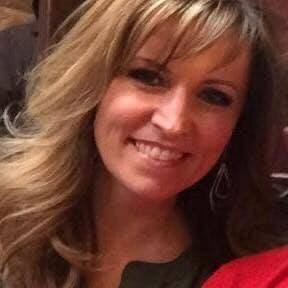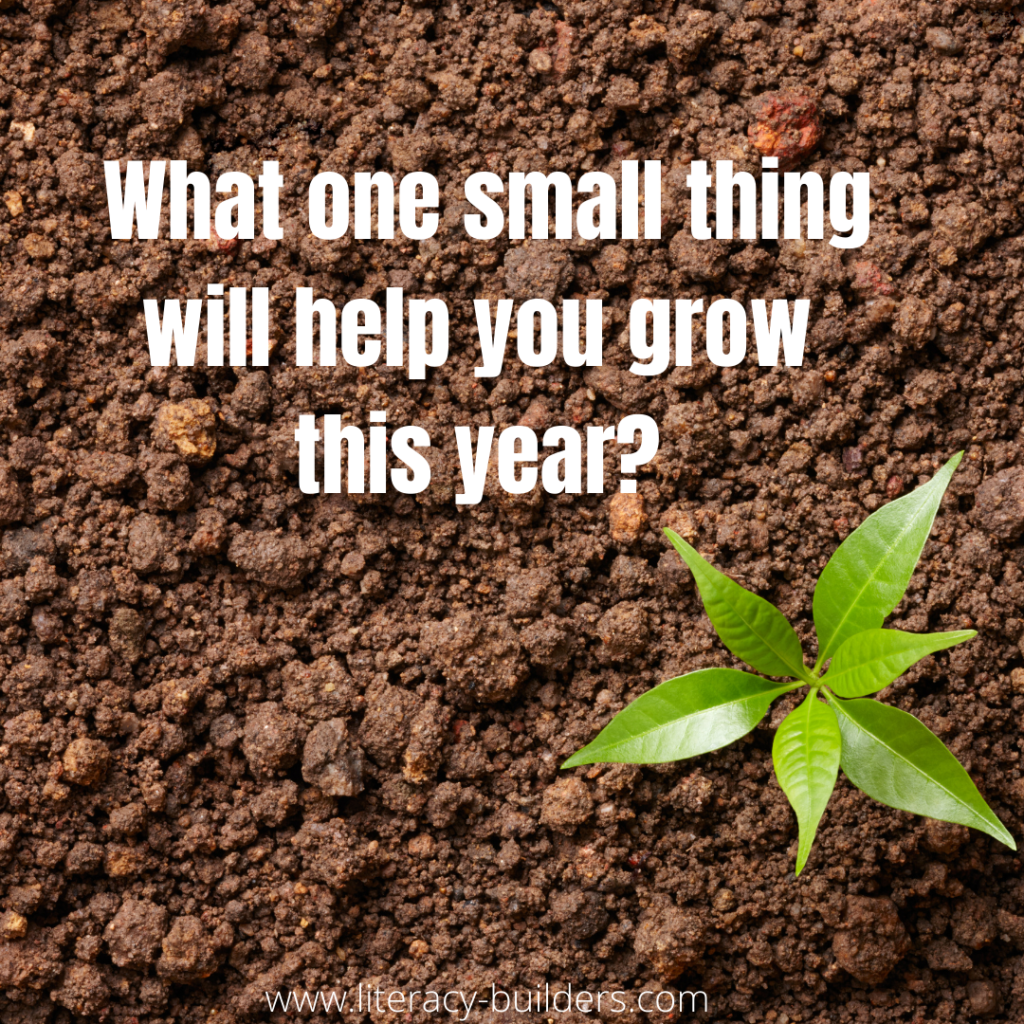As I talk with colleagues at my school and educator friends around the country, I have noticed many of us are carrying around feelings and stories prompted by the overwhelming responsibility of teaching in the era of Covid. We all want to do more than limp across the finish line of the school year, yet the weight of our beliefs about this year are slowing us down.
This made me wonder what we can do to free ourselves of at least some–if not all–of this heaviness. I spoke with Lisa McCourt, bestselling author and Joy Trainer, who offers us important insights about what we can do to let go of some of our limiting beliefs.

Kim: This year, which has been a mix of online, hybrid, and in-person teaching, I’ve heard some of my teacher friends say things like, “I feel like such a failure,” and “I just don’t think I’m cut out for teaching anymore.” What do you think is beneath these sentiments? Why are they saying things like this?
Lisa: Teachers—bless their souls—want to be the absolute best they can be for their students. I mean, we all want to be good at our jobs, but my experience of teachers is that they deeply recognize how especially imperative it is for them to be at the top of their game, never letting up in patience, compassion, creativity, improvisation, and resilience—day after day, no matter what unprecedented obstacles are thrown at them. Sigh. It’s exhausting just thinking about it.
That said, feeling like a failure wasn’t the exclusive purview of teachers this past year. Employment challenges, financial stress, and fears for the health of ourselves and our loved ones brought a great many of us from all walks of life to this point of feeling like failures.
Beneath this failure feeling, we’re all just experiencing the sting of our vulnerably uprooted (albeit unwarranted) shame. Our egos have been tarnished. Most of us get a hefty degree of our self-esteem from our perception of how well we’re doing at life, and when some new, unwieldy factor thrusts us into a long phase of feeling less effective, less successful, less in control, less safe, less prepared, less competent, less financially secure, or any other “less” feeling, it creates an uncomfortable tension in us.
Part of my job this past year has been to point out the many ways that all this seeming chaos can be retooled for opportunity. When the status quo crumbles around us, it always provides an opening for building something new out of the wreckage. Even before the bizarre challenges of this past pandemic year, you may have been settling for a day-to-day existence that was below what you deserved. You may not have been stopping to consider your level of joy and what you might be able to do to raise it. It may never have occurred to you whether repetitive thought patterns could be limiting you unnecessarily, consistently diminishing your capacity for joy and the highest expression of your true self.
And now, after being sucker-punched in the emotional gut by seemingly endless and insurmountable challenges, maybe you are a bit more inclined to look into these things. The gift of contrast is that it provides an opportunity to identify what we truly want. And right about now, we’re all pretty clear that we want some peace, clarity, and, yes—joy—back in our lives. I’m seeing lots of evidence that our collective experience of contrast has poised many of us for claiming joy well beyond our pre-pandemic setpoints.
Kim: How do you think a regular diet of sentiments like “I am a failure” impacts educators?
Lisa: Failure is a story we tell ourselves, and the more often we tell any story, the more solid it feels to us. The truth is that in every moment of every day, we have the opportunity to look at our careers (and any other aspect of our lives) through a lens of failure or through a lens of wild success.
There are always going to be teachers who seem to be knocking it out of the park in comparison to you, and if you’re honest, you know that there are always going to be teachers who lack your skills, talents and influence in the classroom. Where you place yourself on that spectrum is entirely your choice (though it may not feel that way) and the truth is that the more you tell yourself you’re a failure the more you’ll attract and create evidence to shore up that belief. That’s just how energy works. We think it goes like: “I see evidence that I’m a failure, so I believe it.” When, in reality, the reverse equation is far more accurate: “I believe I’m a failure, so I’m creating evidence in my life to shore up that belief.”
This goes on below the level of our conscious awareness, of course. We create the circumstances of our lives through our behaviors and actions. Our behaviors and actions are born of our thoughts. And the vast majority of our thoughts stem from unconscious beliefs we hold about ourselves and our place in the world. The unique challenges of pandemic times have nudged those unconscious beliefs up to the surface for many of us. Fortunately, that’s exactly where we need them to be so that we can work with them. Yay, Covid!
If you want a crystal-clear report card showing you how well you’re doing at honoring your precious self with all your perfectly human imperfections and living in alignment with your soul’s wisdom, all you need to do is look around at the results you’ve been creating and how much joy you’re experiencing. Improving the report card means focusing on bringing up the grade on your “inside” belief system, then allowing that improvement to create new evidence on the outside.
Kim: What could my teaching colleagues and I do to shift these beliefs?
Lisa: I’m so glad you asked it that way because shifting your beliefs absolutely is the one and only answer, and it’s completely doable with some tools and practice. You can get started with just a basic understanding around energy and quantum physics. Put as simply as possible, the attention you give to anything affects that thing.
Like everything in your life, your thoughts and beliefs are made of energy. That means you have the power to expand or reduce the presence of anything you experience by taking charge of the energy you feed it. (That includes the perception that you’re a failure.)
You can think of your focused attention as the water you sprinkle on everything that exists in the garden of your life. The more you water it, the more it proliferates, and that goes for the things you want as well as the things you don’t. Maybe you’ve heard this concept before, and maybe you even accept it intellectually. But for most of us, making it the solid, unwavering paradigm through which we live our lives takes more than an intellectual understanding. Making that leap generally requires some study and commitment to a deliberate, consistent practice.
If you’re seeing yourself as a failure, it’s a leap well worth your time and effort. To take the first tiny step, practice becoming an observer of your thoughts, particularly the thoughts you have about yourself. Observing your thoughts allows you to detach a bit from their energy. Ask yourself: “Is this thought I’m having about myself true in any objective sense? Is it possible that the opposite of this thought is also equally true? If I were a lawyer in a courtroom presenting evidence for the opposite of this thought, what could I come up with?” Make a list of evidence you could present to argue the case that you’re not a failure. It might feel silly, but it’s an easy, basic tool for turning your attention in the right direction. Focusing on evidence that you’re a success opens the energetic valve for more successful circumstances to unfold.
Kim: What advice do you have for those who feel stressed and tired from managing online and hybrid models of teaching for over a year?
Lisa: Whatever you’re chasing—whether that’s being a superstar teacher, some situation you believe will give you some other kind of joy, or any other goal that you’ve put out there in front of you—the key is to stop chasing it. As long as you’re seeking it “out there,” it will remain its same distance from you. The solution is to change what’s inside you, so that you become the magnet that gently, effortlessly pulls your desired circumstances to you. That’s what working with your personal energy is all about.
To stay with this example of you teachers feeling like failures, my advice would be: Darlings, it’s time for you to get serious about your self-love. You are the shining, glowing gems of this thing. (Well, you guys and the healthcare workers.) Everyone knows it but you. Everyone in the world with a halfway healthy sense of compassion has been pulling for you, appreciating you, and wanting to buy you a pony. If ever there were a valid time to give yourself a break, it’s now.
You’ve been through a tremendous upset to your systems and routines. You’re weathering a wicked, unprecedented, unexpected storm. You never signed up for that. So, show your sweet self some long-overdue affection. You don’t have to be all the things to all the people. You don’t have to “get it right,” whatever that’s come to mean to you.
Be brave enough to say no when you’re overextended. Be brave enough to rest. If there are people who don’t understand, be brave enough to let them have their unrealistic expectations of you as you lovingly dismiss them.
You may have temporarily lost your spark, but it’s still a glowing ember waiting for you to fan it back to life with a steady course of well-deserved self-honoring. Say yes to things that bring you joy and no to things that don’t. Watch yourself become more and more a match to your own precious soul.
Maybe it’s true that you’re not the teacher you used to be. But maybe this whole ordeal is making you a deeper, wiser, far more evolved, and expanded one. Ordeals can do that for us when we let them.
An Important Note from Kim
If Lisa’s words resonate with you, I want to let you know that you can soak them up regularly by joining one of her Joy School Circles. These amazing, weekly, virtual meetings are filled with wisdom, insights, strategies for positive living, and warm, fuzzy feelings. I have been participating since October and am not exaggerating when I say they have changed my life!

 Today, join me, Kim Yaris, in warmly welcoming my good friend and colleague, Deanna Krueger, a literacy specialist in Bismarck, North Dakota, to the Literacy Builders blogging family. As I have been struggling with the many demands of being back in the classroom, Deanna’s words were just what I needed to hear and I suspect that they will resonate with many of you as well!
Today, join me, Kim Yaris, in warmly welcoming my good friend and colleague, Deanna Krueger, a literacy specialist in Bismarck, North Dakota, to the Literacy Builders blogging family. As I have been struggling with the many demands of being back in the classroom, Deanna’s words were just what I needed to hear and I suspect that they will resonate with many of you as well! 


